REAL Centre Blogs
This page lists the REAL Centre blogs written by staff, students and partners. This includes blogs curated as part of a series reflecting on the impacts of the COVID-19 pandemic on research work on international education and development. Research and policy papers, as well as other reports, can be found on our Publications page.
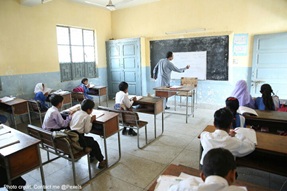
Unpacking classroom pedagogy: More and better data for teacher quality for evidence-informed policies in Pakistan
Sohail Ahmad, Yusuf Sayed and Sajid Ali, 23 October 2025
This blog focuses on the ongoing discussion about evidence-based policies in Pakistan. It calls for gathering more data about what is happening inside the classroom in order to not only understand equitable learning at the grassroot level but also to make better informed decisions. "Future education policies and data collection should focus not just on input or output factors, but also on what is happening inside classrooms. By closely examining teaching practices, we can make more informed decisions and ensure that every child receives the quality and equitable education they deserve."
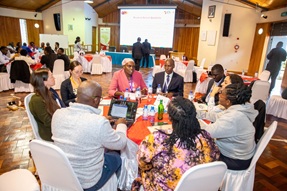
Promoting African French-speaking education research – Why academic scholarship needs attention
Hélène Binesse, 1 October 2025
Academic scholarship from French-speaking sub-Saharan Africa remains under-recognised and under-supported in global knowledge systems – thereby remaining disconnected from both policy influence and scholarly dialogue. This blog outlines findings from a recent mapping of Foundational Literacy and Numeracy (FLN) research in sub-Saharan Africa and provides recommendations for strengthening French-speaking academic research.
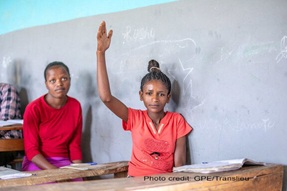
Learning progress in Ethiopia’s Emerging Regions: Evidence from the GEQIP-E reform
Mesele Araya, 29 September 2025
Recent education reforms in Ethiopia (GEQIP-E) placed equity at the core, with targeted support for girls, children with special educational needs and those living in the country’s Emerging Regions such as Somali and Benishangul Gumuz. This blog examines whether these reforms have helped reduce disparities, particularly in education inputs, early numeracy and learning progress.
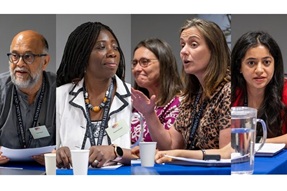
“Where next?” Navigating a future for education and international development amid funding cuts
Laraib Niaz, 28 August 2025
As the REAL Centre celebrated its 10-year anniversary, the closing panel of the conference posed a powerful and timely question: ‘Where next?’ At a time when the education and international development sector is confronting widespread funding cuts, rising global inequality, climate injustices, conflict and multiple crises, the question was not just about direction, but also values, priorities and vision.
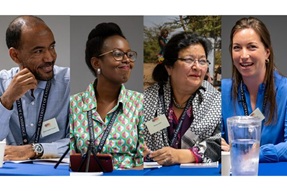
Elevating teachers’ voices to support equitable learning
Dawit Tibebu Tiruneh, 28 August 2025
This blog highlights key messages from the panel discussion on ‘Teachers at the centre of equitable learning’ at the REAL Centre 10-year anniversary conference. Teachers are at the heart of the learning process and central to achieving SDG 4. Panellists highlighted progress on policy commitments to equity, teacher professional development, the role of teachers as evidence generators and change agents, and the importance of teacher voice in shaping decisions.
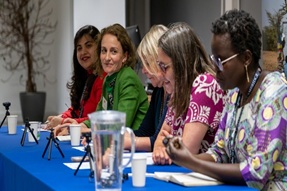
Ten years on: The REAL story of advancing gender equity and social inclusion through changing social norms
Amna Ansari, 27 August 2025
In June 2025, the REAL Centre celebrated ten years of relentless research on tackling injustices in and through education. Evidence generated by the REAL Centre has emphasised the critical role of challenging restrictive social norms that perpetuate educational disparities for girls and other marginalised groups. This blog reflects on global shifts to advancing gender equity and social inclusion in the past decade, as well as priorities for driving future change.
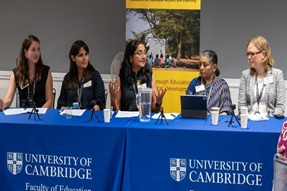
Advancing inclusive education: Moving beyond tokenism
Stephanie Nowack and Sakina Jafri, 19 August 2025
This blog offers reflections on the panel discussion at the REAL Centre 10-year conference, centring on the question: How can we move beyond tokenism to truly advance inclusive education? The discussion explored progress in disability-inclusive education, focusing on inclusive pedagogy, teacher education challenges, and the crucial role of universities and partnerships in fostering inclusive school cultures amid global uncertainties. The panellists sought to move beyond theory, focusing on practice and innovative approaches to make inclusive education equitable for all.
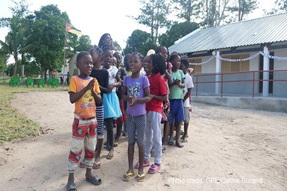
Locally produced early childhood development research in Mozambique: Trends, challenges, opportunities and future directions
Stephen Acquah and Rui daSilva, 18 August 2025
A recent project mapped existing ECD research led by Mozambican scholars based in local institutions. It aimed to raise the profile of the researchers involved, supporting them to produce context-relevant studies to direct policy and practice. This blog discusses the mapping, highlights findings and gaps, and makes recommendations for expanding ECD research in Mozambique.
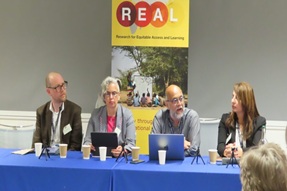
The role of education in decolonisation, climate and conflict: A call to action
Susan Marango, 14 August 2025
This blog post provides key takeaways and insights from the panel discussion on ‘Decolonisation, climate and conflict’ at the REAL Centre’s 10th anniversary conference. Questions and themes explored on this topic included: What does decolonising education mean? What makes climate change a wicked problem? What is the role of education in mitigating the effects of conflict? And how is it exacerbated by inequalities and conflict? How can we address climate change adaptation in education during a time of complex organisational crisis?

The cost of reaching remote schools and the role of district government to enable scale
Ricardo Sabates Aysa, Yuyan Jiang, Najme Kishani, Winny Cherotich, Benjamin Masebo and Lenis Mtitu, 13 August 2025
This blog reflects on the interconnection between two issues. First is the cost of reaching the most remote schools, which are typically also under-resourced, and which require a higher unit cost for programmes to operate. Second is the role that local governments can play, not just with cost sharing, but also in processes which can enhance the possibilities for scaling up programmes. The case study of the My Village project in Tanzania brings evidence to the arguments presented.
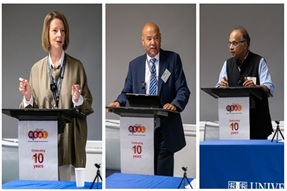
A decade of learning, a future of inclusion: The REAL Centre’s journey
Eunice Mueni Williams, 17 July 2025
This blog is the first in a series about issues discussed at the REAL Centre 10-year anniversary conference held on 12 June 2025. The Centre was born at a moment of global optimism, coinciding with the launch of the SDGs. The conference emphasised that the next decade demands renewed rigour and focus in the face of escalating challenges: climate change, conflict, economic downturn, gender divide in politics, humanitarian crisis and shifting aid landscapes. When research is equity focused, collaboration driven, and intentionally bridged with policy, it can spark real change.

Reaching the marginalised or going to scale? Lessons from the Girls’ Education Challenge
Laraib Niaz, Pauline Rose, Monazza Aslam and Shenila Rawal, 24 April 2025
This blog explores potential tensions between achieving scale and reaching the marginalised in education programmes. It draws on evidence from the Girls’ Education Challenge (GEC) to inform this. GEC projects highlight there can be higher costs of reaching the marginalised, given the complexities of doing so. Despite these higher costs, reaching these girls also provides significant benefits in terms of literacy and numeracy improvements.
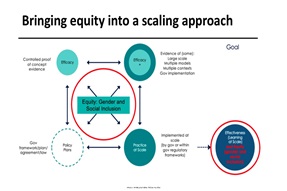
Launching the Gender Equality and Social Inclusion in Implementation Science Research blog series: Bridging the gaps
Laraib Niaz and Pauline Rose, 8 March 2025
This blog was published for International Women’s Day to mark the launch of a new series exploring Gender Equality and Social Inclusion (GESI) in implementation science research. It invites researchers, policymakers and practitioners to contribute evidence and insights, share experiences and engage in dialogue on how to embed GESI considerations in education interventions at scale.
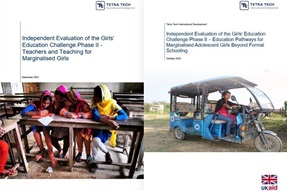
Celebrating evidence from the Girls’ Education Challenge
Pauline Rose, Monazza Aslam and Shenila Rawal, 6 March 2025
After 6 years of collaborating on independent evaluation studies of the FCDO Girls' Education Challenge programme, this blog identifies evidence gaps and show how GEC evidence has helped to fill these gaps in six areas: 1. Gender-sensitive pedagogy; 2. Physical and mental health; 3. Social norm change; 4. Transitions within and beyond education; 5. Child protection and safeguarding; 6. The role of interventions on girls' education for promoting national system change.
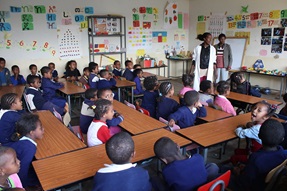
Can evidence on learning gains help guide teacher policy in Ethiopia?
Moses Oketch, Caine Rolleston and Cesar Burga Idrogo, 10 February 2025
'Value-added modelling' typically estimates students’ measured learning gains over a fixed period such as an academic year. But can evidence on pupil progress be used to understand teacher quality or to inform teacher policy? This blog examines this in the context of Ethiopia. It argues that value-added modelling offers important potential, but that findings need careful contextualisation.
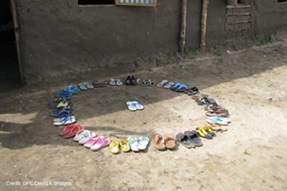
The landscape of refugee education research: Complicit scholarship in violence, oppression and imperialism
Maha Shuayb and Cathrine Brun, 13 January 2025
This blog summarises insights from the research programme 'Decolonising Knowledge Systems'. Specifically, it focuses on the field of education of forced migrants & the rise & quick growth of the field over the past 20 years. It looks to uncover patterns in knowledge production, examining the role of colonial legacies & how they manifest in the type of knowledge produced — and HOW the knowledge is produced.
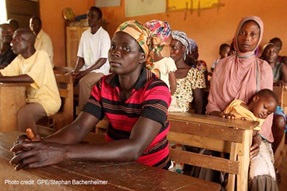
Scalability of educational innovations in West Africa: The role of civil society organisations
Leslie Casely-Hayford, Ricardo Sabates, Dr Adedeji and Fatu Yumkella, 9 January 2025
This blog identifies strong capabilities among communities towards developing and sustaining their own educational provision. Local NGOs have been innovating for years on educational provision and accelerated learning that can serve children in under-resourced areas.
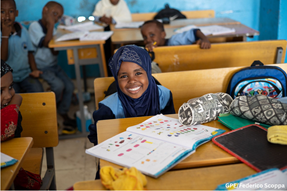
Foundational literacy and numeracy research in sub-Saharan Africa – collaboration, impact and publishing inequalities
Hélène Binesse, 23 December 2024
This blog highlights how African researchers in the field of FLN, amongst others, often depend on international collaboration to publish in high-impact journals. This study mapped FLN research in SSA, aiming to spotlight often overlooked, policy-relevant studies by SSA-based researchers across international, Francophone and Lusophone databases.
Read the full blog post (also in French)
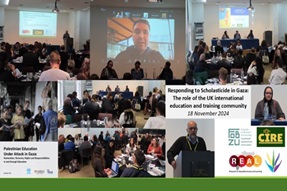
Conference on scholasticide in Gaza: A Call to Action for the international education community
11 December 2024
This blog summarises highlights from the hybrid conference on Responding to ‘Scholasticide’ in Gaza. The event brought together Palestinian academics, UK-based educators, and experts to discuss the devastating impact of the ongoing genocide on Gaza’s education system. It aimed to explore the destruction of Gaza’s universities and schools and to propose actionable solutions to support recovery efforts.
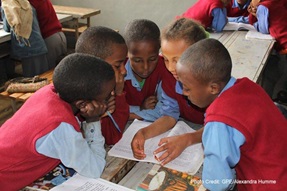
Lessons from RISE Ethiopia for the Education Transformation Operation for Learning Programme
Dawit Tibebu Tiruneh, Nardos Chuta, Alula Pankhurst, Belay Hagos Hailu and Caine Rolleston, UKFIET, 27 November 2024
This blog highlights key lessons from the RISE Ethiopia research that assessed the design and implementation of the GEQIP reform programme to inform the new Education Transformation Operation for Learning reform process. Key lessons build on experience of influencing strategies to enhance the effectiveness of national education reforms and approaches to establish strong partnerships through research on GEQIP.
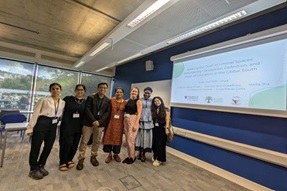
Seeking the ‘just’ in liminal spaces: Rebordering conception, definition, and praxis of education in the Global South
Nikita Jha, Stephanie Nowack, Camilla Hadi Chaudhary, Surya Pratap Deka, Basirat Razaq-Shuaib and Nidhi Singal, 25 November 2024
Six researchers teased out common threads in their doctoral projects at the September BAICE conference, with the theme of ‘(re)bordering education’. They focus on questions around agency, empowerment, and redefinition, anchored heavily in Southern epistemologies.
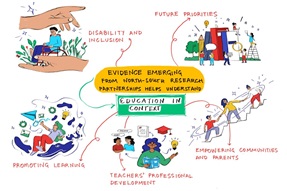
South-North research partnerships making progress on understanding education
Ricardo Sabates and James Georgalakis, 20 November 2024
In November 2024, researchers from the Raising Learning Outcomes programme gathered to discuss the implications of a decade of research produced by global South and North partnerships. Broad topics discussed included: disability and inclusion, how to promote learning, teachers' professional development, the empowerment of communities and parents and included a discussion on priorities for the future.
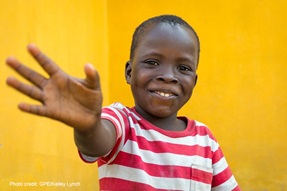
Early Childhood Development outputs by researchers in sub-Saharan Africa: Focus, funding and collaboration
Daniel Hawkins Iddrisu and Eunice Mueni Williams, 30 September 2024
This blog summarises some of the key findings from a mapping exercise to map ECD research authored by researchers based in sub-Saharan Africa to help understand the landscape of ECD in the region. The project in-depth searches of research outputs in Kenya, Uganda, Tanzania, and Ghana.
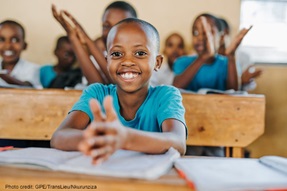
Prioritising early learning research in sub-Saharan Africa for equitable learning outcomes
Samuel Asare, Priscilla Bretuo, Ronald Omuthe and Basirat Razaq-Shuaib, 24 July 2024
This blog is part of ongoing work by the REAL Centre and ESSA to increase the visibility and use of education research published by scholars in sub-Saharan Africa. It builds on a previous analysis highlighting limited research addressing early years in sub-Saharan Africa, and continues to draw attention to the need to prioritise early learning for equitable learning outcomes.
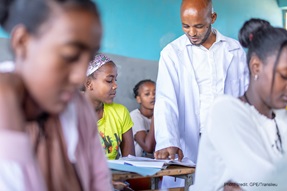
Partnership is key for evidence to translate into impact: Lessons from RISE Ethiopia
Dawit Tibebu Tiruneh, Mesele Araya, Pauline Rose, Ricardo Sabates and Tassew Woldehanna, 11 July 2024
This blog highlights impact achieved from the RISE Ethiopia programme. It identifies how education policymakers in Ethiopia have engaged with evidence from reforms to address the ongoing learning crisis, and highlights lessons learned from the partnerships. The analysis is based on three qualities of partnerships: bounded mutuality, sustained interactivity and policy adaptability.
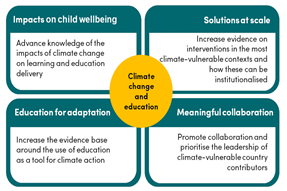
Climate change and education: Building momentum through a shared research agenda
Pauline Rose, Yusuf Sayed, et al. 1 July 2024
What impact is climate change having on education? And what role can or should education play in the face of imminent climate change? This article outlines a research agenda to protect children’s education in the face of a deepening climate crisis.
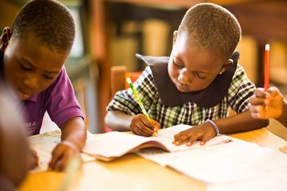
The impact of the language of instruction on foundational literacy and transitions
Pui Ki Patricia Kwok, Nisha Thomas, Catherine Young and Ann Veitch, 1 July 2024
This blog calls for more academics and practitioners to share a collective responsibility in promoting effective multilingual education in international settings. The authors call for the acknowledgement of the complexity of implementing the language of instruction policy in any education system; the importance of local engagement and community-based solutions to ensure transitions from one language of instruction to another are effective; and solutions-focused research and dialogue around foundational literacy and language of instruction transitions.
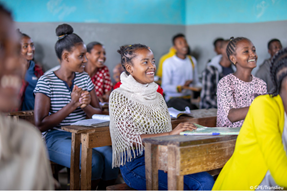
Spotlight on Ethiopia's secondary education challenges
Dawit T. Tiruneh and Tebeje Molla, Norrag, 18 April 2024
The education system in Ethiopia has been grappling with a substantial crisis, associated with quality, equity, and efficiency. Despite remarkable achievements in access, raising the quality of education amidst rapid enrolment growth has posed significant challenges. This blog highlights five issues affecting the secondary school system: an underfunded school sector, inadequate teacher preparation, narrow curricular provisions, abrupt policy changes, and widespread instability.
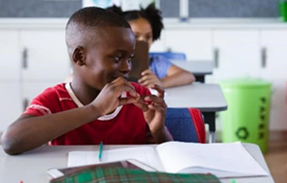
The “how to” of inclusive policy design
Hanna Alasuutari, Laraib Niaz and Kanae Watanabe, World Bank Blogs - Education for Global Development, 14 March 2024
Why are more children with disabilities being left out despite rising global interest in building more inclusive education systems? A focused approach is needed to ensure that every learner—including marginalised learners such as persons with disabilities—can participate and benefit from education.
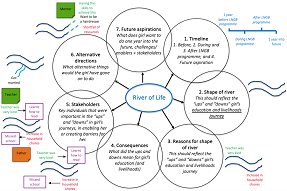
Elevating the perspectives of marginalised adolescent girls: Exploring education journeys using the River of Life participatory approach
Asma Zubairi, Pauline Rose, Monazza Aslam, Romanshi Gupta, Shenila Rawal, Catherine Jere, Participatory Methods, 22 January 2024
This blog presents some of the stories from out-of-school marginalised adolescent girls in Kenya, Ghana and Nepal, who took part in Girls' Education Challenge projects promoting agency and life choices in their livelihood journeys. These stories were gathered using the River of Life visual story-telling approach.
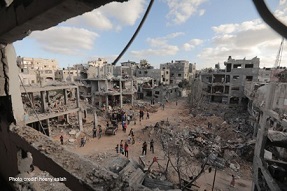
What does ethical solidarity look like for academic professional bodies in times of unfolding genocide?
Laila Kadiwal, Mario Novelli, Pauline Rose, Jee Rubin, Yusuf Sayed, Maha Shuayb and Arathi Sriprakash, BAICE, 17 December 2023 and UKFIET, 18 January 2024
This blog highlights the implications of academic and scholarly silence and inaction. It provides five clear recommendations for international academic solidarity.
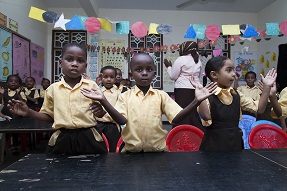
Understanding research priorities and professional development needs of early years researchers in Africa
Samuel Asare and Pauline Essah, UKFIET, 14 December 2023
This blog discusses research priorities and professional development needs of early childhood development and foundational learning researchers in Africa. It draws on data collected from Africa-based researchers.
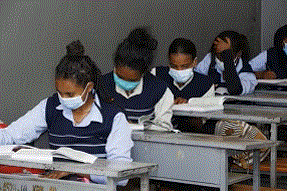
Ethiopia’s education system is in crisis – now’s the time to fix it
Tebeje Molla and Dawit Tibebu Tiruneh, The Conversation, 23 November 2023
Ethiopia’s secondary education sector is in crisis. Hundreds of thousands of children continue to complete primary school without grasping the fundamentals of literacy and numeracy. For the second consecutive year, more than 96% of students who participated in the national school leaving examination scored less than the mark required to pass. Now is the time to act, with a sense of urgency and purpose.
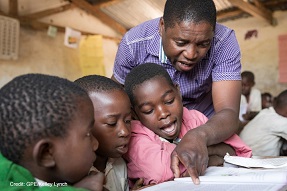
Mapping research on Foundational Literacy and Numeracy in sub-Saharan Africa contexts – where are the publications?
Hélène Binesse and Rui da Silva, UKFIET, 9 November 2023 (with French version on NORRAG, 23 November 2023)
To what extent are African researchers publishing on foundational literacy and numberacy? This blog concludes that research in languages other than English should be further supported to ensure diversity and equitable participation.
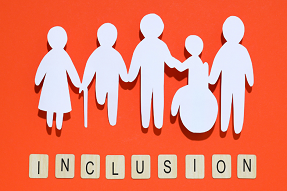
I AIN’T NO AFTERTHOUGHT: Challenging the non-prioritisation of the educational rights of children with disabilities
Basirat Razaq-Shuaib, NORRAG, 2 November 2023
This blog presents a poem that Basirat delivered at the 2023 UKFIET Conference. The poem draws attention to the non-prioritisation of children with disabilities in educational reform agendas.
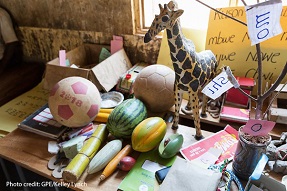
Mapping early childhood development research for local knowledge and global development: Evidence from sub-Saharan African-based researchers
Daniel Hawkins Iddrisu, UKFIET, 24 October 2023
This blog focuses on mapping sub-Saharan African-based ECD research and researchers. It aims to understand the landscape of ECD research, the challenges and opportunities available to ensure the visibility and application of locally-led evidence to inform policy, planning and practice in Africa.
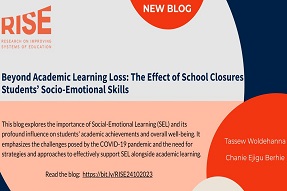
Beyond academic learning loss: The effect of school closures on students’ socio-emotional skills
Tassew Woldehanna and Chanie Ejigu Berhie, RISE Programme, 24 October 2023
We know the COVID-19 pandemic resulted in academic learning loss, but what was the effect on school dropout and socio-emotional learning? Emerging data indicates that not all students have returned to continue their education even after schools have reopened, resulting in learning loss with lasting repercussions.
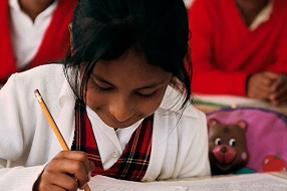
Celebrating 60 years of IIEP’s planning for gender equality and inclusion
Pauline Rose, UNESCO World Education Blog, 19 October 2023
As IIEP-UNESCO celebrates 60 years, this blog highlights how educational planning promotes gender equality and inclusion. Although much progress has been made towards gender equality and inclusion in education, there is still a lot to do. This blog highlights IIEP's achievements as well as areas that education planners can and must continue to engage with.
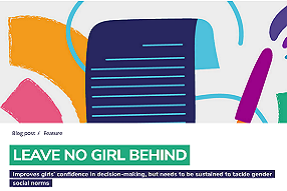
Leave No Girl Behind: Improves girls’ confidence in decision-making, but needs to be sustained to tackle gender social norms
Asma Zubairi , Pauline Rose , Monazza Aslam , Shenila Rawal and Romanshi Gupta, UNGEI, 9 October, 2023
A recent study engaged adolescent girls to understand their perspectives, through participatory research methods, in Kenya, Ghana and Nepal. This blog focuses on findings with respect to changes in adolescent girls’ decision-making and future aspirations as a result of their participation in the projects. It also focuses on what more needs to be done to sustain the momentum.
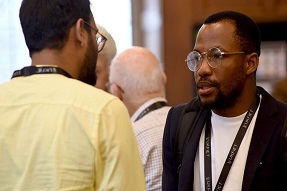
From a first-generation student to an early-career speaker in an international conference: A reflection of my UKFIET conference experience
Daniel Hawkins Iddrisu, UKFIET, 6 October, 2023
From a first-generation student to an early-career researcher, Daniel took the podium at his inaugural international conference at the UKFIET conference in September 2023. In this blog, he shares insights from the conference, recounting how this seminal experience has conferred lifelong benefits and, hopefully, offers valuable lessons to budding researchers.
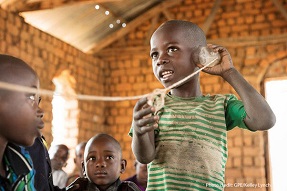
The place of locally published and unpublished early childhood development research in sub-Saharan Africa
Eunice Mueni Williams, UKFIET, 3 October, 2023
Recent work to map early childhood development (ECD) research by African scholars from Ghana, Kenya, Mozambique and Tanzania found extremely few articles published in international journals. This raised the question of whether this research is more readily available within these countries from other sources. The article concludes that locally published or unpublished African research exists, but is largely invisible in international spaces and thus is maybe being excluded when developing international and local policies and development agendas.
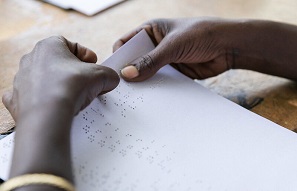
Notions around a “Successful Woman with Disabilities”: Exploring voices of girls in Nepal, Malawi and Uganda
Nidhi Singal and Laraib Niaz, World Bank Inclusive Education Initiative, 24 July 2023
For girls with disabilities, socially constructed beliefs on gender and disabilities may negatively impact attributes such as self-efficacy, aspirations for the future and conceptualisations of success. Yet, few studies have explored the aspirations of girls with disabilities themselves. A new study of Girls’ Education Challenge projects in Nepal, Malawi and Uganda spoke to teenage girls with disabilities, currently enrolled in secondary schools, and asked them how they perceived “success”.
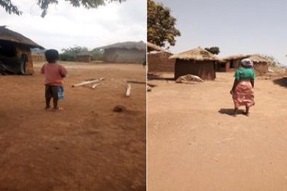
Centring the voices of girls with disabilities: A Photovoice exploration of school life and challenges
Nidhi Singal and Laraib Niaz, UNGEI, 13 July 2023
A recent REAL Centre study used participatory methods to understand how educational interventions of Girls’ Education Challenge projects impacted the lives of girls with disabilities and their families. The research engaged with girls with varied disabilities in Malawi to understand what they valued about secondary schooling and the challenges they faced. All photos were taken by Malawian girls as part of the research.
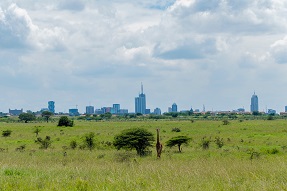
From Cambridge to Nairobi: Insights from fieldwork
Naomi van Rijn, FERSA, 28 June 2023
For many researchers, carrying out their fieldwork is the pinnacle of their research process. However, culture shock, no matter how prepared individuals are, is a reality. The author reflects on how important it is for a researcher to be prepared to deal with this particular kind of loneliness and all the feelings that go with it.
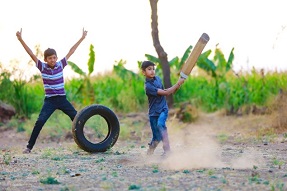
All work and no play? Busting the binary in Majority World settings
Stephen Bayley, PEDAL, 19 June 2023
A recent report on measuring playful learning in several international contexts found the distinction between work and play was not clear-cut. Drawing on data from Colombia, Ghana and Kenya, the authors describe the ‘porous’ boundary between work and play, with adults engaging children in chores, responsibilities and ‘work-like play’ at home and in school.
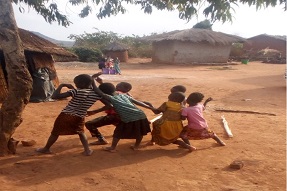
Centring the voices of girls with disabilities: A Photovoice exploration of school life and challenges
Nidhi Singal and Laraib Niaz, Girls' Education Challenge, 6 June 2023
This blog presents views from six girls with disabilities who participated in a Photovoice activity in rural Malawi. They were asked to take photos about their experiences and challenges relating to school life. The girls all emphasised the value of education for a better future. Their experiences showed the need for basic infrastructure and facilities (not just targetted assistive resources), which have a positive impact on all children, not just girls with disabilities.
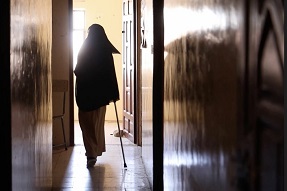
Focused interventions for girls with disabilities builds ‘life-changing’ self-esteem and aspirations
Nidhi Singal and Laraib Niaz, World Education Blog, 31 May 2023
Interventions targetting girls with disabilities improved learning outcomes, yet the most striking results concern the broader social and emotional impact. Girls expressed greater confidence and self-esteem, improved social interactions and more positive aspirations for their own futures. The authors stress that measures to provide additional resources or adaptations must be accompanied by more basic improvements to schools.
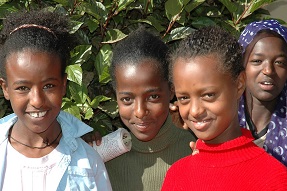
Free secondary education in African countries is on the rise - but is it the best policy? What the evidence says
Rob Gruijters, The Conversation, 31 May 2023
The abolition of secondary school fees in resource-constrained contexts is still a subject of debate. Free secondary education can be costly and inequitable in the short run, especially if it diverts resources from primary education. Based on new findings, this blog argues for a policy of “progressive universalism”: free education should be introduced gradually, starting with the lowest levels.
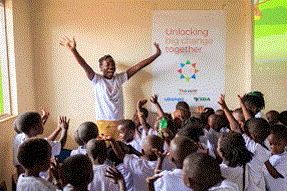
G20 leaders need to step up to the mark in investing in early childhood education for the world’s poorest children
Pauline Rose and Justin van Fleet, World Education Blog, 17 May 2023
International aid for pre-primary education has fallen further behind spending agreed targets since the outbreak of Covid-19. Some of the world’s least-advantaged children have little prospect of receiving any pre-primary education. The G20 urgently needs to review and revitalise its commitments to early childhood education at its meeting in September 2023 in New Delhi.
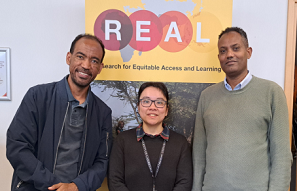
Early Career Research: Making our world a more welcoming place for education
Pat Kwok, Dawit Tibebu Tiruneh and Mesele Araya, Homerton College, 11 May 2023
The three authors are all post-doctoral researchers with the REAL Centre and share similar passions for improving equitable access to quality education for all children and adolescents particularly in low-income contexts. Their endless conversations have revolved around the causes of inequalities in education, and how research might contribute to addressing those issues.
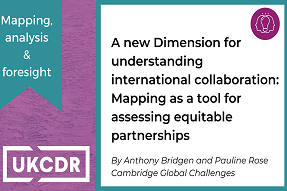
A new Dimension for understanding international collaboration: Mapping as a tool for assessing equitable partnerships
Anthony Bridgen and Pauline Rose, UKCDR, 3 May 2023
The pursuit of equity in research partnerships is crucial for addressing the power imbalances characteristic of collaborations in recent decades. The mapping of research collaborations, especially between Global South and North researchers, can be a valuable tool for measuring a partnership’s extent. This blog summarises a mapping of publications from 2022 in peer reviewed, international journals co-authored by the University of Cambridge and researchers based in low- and lower-middle income countries.
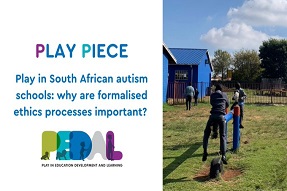
Play in South African autism schools: why are formalised ethical processes important?
Stephanie Nowack, PEDAL, 2 May 2023
This blog considers how to ethically conduct research in Global South settings. The author has identified three steps: Engage in bottom-up, exploratory, and participatory research approaches; Engage in genuine collaborative partnerships with South African organisations from the very beginning of research; Respect local data ownership and rules of ethics.

Navigating uncertainty: The role of north-south research partnerships in Ethiopia’s education response to COVID-19
Louise Yorke, Janice Heejin Kim, Belay Hagos Hailu and Chanie Ejigu Berhie National Centre for Research Methods 27 April 2023
This blog shares key learning from two Ethiopia research projects to help achieve equitable north-south partnerships, and achieve greater policy impact. Strong relationships helped to adapt the research during COVID-19 to consider changing policy priorities in response to the crisis, implement careful research practices, and generate timely and quality evidence for government, schools and parents.

Is development a new channel for youth activism?
Phoenix Kenney Cambridge Peace and Educatoin Research Group 19 April 2023
While it appears youth have become integrated in Nepal’s political structure and there are now platforms centered around ‘youth voice’, young people still feel they aren’t being heard, encouraging them to look to other means.
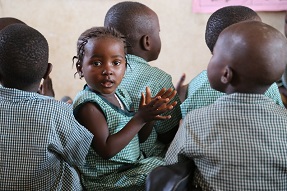
Combining monitoring and advocacy for a 10 per cent spending target on pre-primary education
Pauline Rose and Asma Zubairi UKFIET 12 April 2023
Aid spending on pre-primary schooling remains abysmally low, despite growing recognition of the importance of a child's first five years of life. Theirworld has been campaigning for 10% of education aid budgets to be spent on pre-primary education. This blog shows we are still a long way from seeing this as a reality.
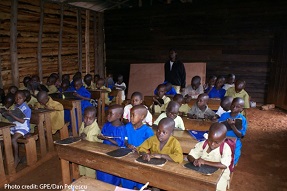
Deficit-oriented teacher beliefs inhibit poor students’ learning and wellbeing
Rob J. Gruijters and Nomisha Kurian UKFIET 3 April 2023
Low learning outcomes, especially among poor and marginalised students, are a pervasive problem in many low- and middle-income countries. Negative teacher beliefs and expectations may contribute to low learning outcomes among the poor, especially if they are reflected in classroom practices and interactions. This blog summarises findings from a literature review to identify the mechanisms that link teacher beliefs to the wellbeing and educational achievement of marginalised students.
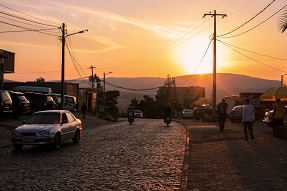
Gaining research permissions in Rwanda and Tanzania: Engaging locally and building integrity as an ‘outsider’
Emma Carter and Manuel Kernan FERSA 9 March 2023
While not necessarily the most enjoyable aspect of a research project, due to the time and paperwork involved, gaining research clearance is vital, and has a number of additional benefits for the research itself. This article discusses the research permission process for Rwanda and Tanzania.

‘My digital dreamkeeper’: Using technology-enhanced learning and human-centred design to support refugee learners’ wellbeing
Nomisha Kurian REACH 27 February 2023
It has been well-documented that trauma-affected students often thrive when given more time to think and process. For refugee youth who have experienced trauma and loss, narrative expression through digital diaries creates space to process and make meaning around their experiences.

Combatting a poverty of play: revisiting the global landscape of post-pandemic play and learning
Sabilah Eboo Alwani BAICE 23 February 2023
A year on from the March 2022 virtual Global Symposium on Post-Pandemic Play, this blog is an opportunity to reflect on what has changed and where we are at now. Two of the speakers share updates on their work and perspectives on the status of play’s adoption as a post-Covid tool for returning to learning.
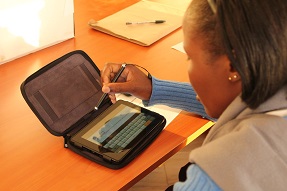
Building bridges, not barriers: 5 takeaways from innovations in disability-inclusive technology
Nomisha Kurian Cambridge Wellbeing & Inclusion SIG, 13 February 2023
‘We shape our tools and thereafter our tools shape us.’ The way we design technology needs to include historically overlooked groups of people, such as elders, women and girls, people with disabilities, and ethnic minorities. This blog focuses on the world’s largest minority: people with disabilities. It highlights 5 takeaways the author has learned from studying disability-inclusive technology.
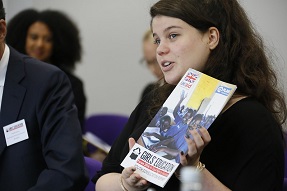
Advancing the agenda in girls' education research
Benta Abuya, David Evans, Selim Gulesci, Nicole Haberland, Susannah Hares, Rabea Malik, Alessia Mortara
and Pauline Rose Center for Global Development, 8 February 2023
This note was written by a group of researchers who have come together to outline some crucial next steps to advance the research agenda on girls’ education. They propose five areas where researchers can better collaborate to advance the field, and call for better coordination among researchers—and better collaboration among researchers, policymakers, and funders—to keep advancing our knowledge and action for girls' education and women’s empowerment.
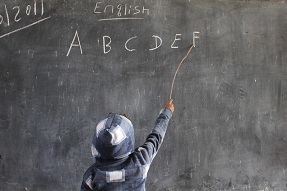
What have we learned from Ethiopia’s national quality education reform programme: Lessons for the Ministry of Education
Mesele Araya, Tassew Woldehanna, Pauline Rose and Ricardo Sabates RISE Programme, 30 January 2023
This blog outlines key messages from a workshop held in Addis Ababa in December 2022 to celebrate the end of the six-year Research for Improving Systems of Education (RISE) project. The blog summarises three main takeaways from RISE Ethiopia’s research with lessons for the continuation of the Ethiopian Ministry of Education’s quality education reform process in going forward.
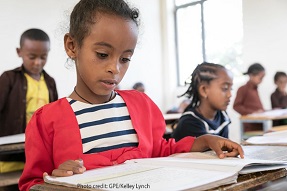
Lessons from Ethiopia for the global education community on large-scale education reforms with equity
Pauline Rose, Ricardo Sabates and Tassew Woldehanna UKFIET, 29 January 2023
As the RISE Ethiopia programme comes to an end, the research team has been encouraged to see how the research has been influential in not only informing national policy change, but also global education policy debates. This blog looks back at some of the key messages from the research, and shares a few examples of how the work has had an impact.
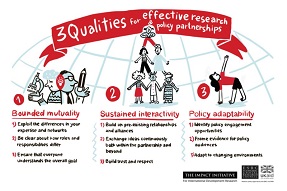
Working at the confluence of research and implementation to support girls’ education: Reflections on the REAL Centre – CAMFED partnership
Luisa Ciampi and Lilla Oliver, BAICE, 15 December 2022
This blog highlights key lessons from the partnership between the REAL Centre and CAMFED working at the confluence of research and implementation with the aim of supporting girls’ education.
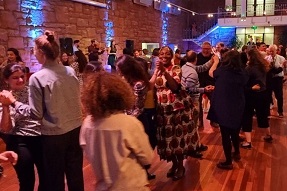
BAICE OR REPLACE? My Experience of the 2022 BAICE Conference as a PhD Student
Basirat Razaq-Shuaib, BAICE, 30 November 2022
This blog relates the experiences of a PhD candidate in participating at and helping to organise the first in-person BAICE conference since Covid. "Overall, it wasn’t perfect but it was insightful, beautiful and memorable."

Sharing experiences of youth partnership in conflict contexts: Reflections from the BAICE conference
Phoenix Kenney, BAICE, 24 November 2022
This blog provides reflections from a PhD candidate on her experience of participating at the September 2022 BAICE conference as part of a panel on ‘partnerships in conflict contexts.’ The panellists emphasised the importance of listening to youth voices in times of emergency.
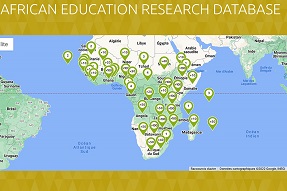
Evidence on education in the early years needs greater prioritisation in sub-Saharan Africa
Samuel Asare, Priscilla Bretuo, David Izuogu and Ronald Omuthe, Association for the Development of Education in Africa (ADEA), 11 November 2022
ESSA and the REAL Centre have been updating the African Education Research Database. Between 2018 and 2021, the number of new publications per year more than quadrupled. Almost half of all publications were on higher education, with a notable decline in those on primary education. Not only is early childhood education a tiny proportion of overall publications, but an extremely small proportion of these publications receive external funding.
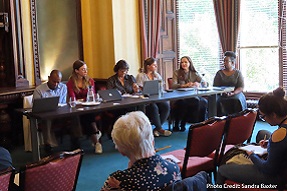
Lessons learned from a North-South research partnership in Rwanda
Lydie Shima and Emma Carter, UKFIET, 18 October 2022
While literature recommends partnerships which are equitable, a number of challenges and power imbalances can emerge. Another factor which is typically overlooked is the important role that methodology can play in supporting equitable partnerships. This blog reflects on lessons learned from a partnership through the Leaders In Teaching programme.
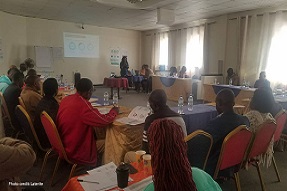
Bringing teachers’ voices into the discussion about teaching and learning in Rwanda
Laterite and REAL Centre, UKFIET, 5 October 2022
Engaging research participants in the findings they have contributed to can help to identify rich evidence-based solutions.This blog outlines how the Leaders In Teaching programme shared findings with teachers who then made recommendations which were shared directly with policy-makers in Rwanda.
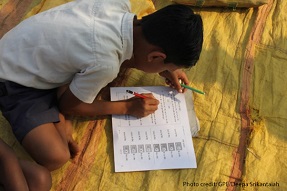
Parental involvement continues to be central for reducing school dropout: Evidence from India during the pandemic
Subhasree Sarkar, Suman Bhattacharjea and Ricardo Sabates, UKFIET, 26 September 2022
The Covid-19 pandemic led to the closure of schools and lockdowns in India. What can we learn about the role of parents during school closures and their influence on reducing the likelihood of school dropout?

Modelling sample attrition in "value-added" models of learning
Mesele Araya, Dawit Tibebuh Tiruneh and John Hoddinott, RISE, 22 September 2022
As primary school enrolment rates continue to increase in low-income countries, attention is shifting away from factors that affect attendance and towards those factors that affect learning. This blog introduces a 9-step approach to adjust for dropout while calculating learning gained by a cohort over a school year.
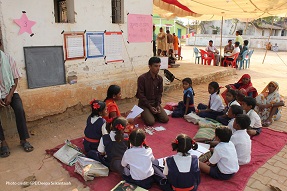
Involving the community in raising children’s foundational learning outcomes: Evidence from India
Suman Bhattacharjea, Deepak Kumar and Ricardo Sabates, UKFIET, 18 July 2022
Achieving basic literacy and numeracy skills is fundamental for successful learning through the schooling cycle. Supporting children to achieve these foundational skills requires not just teachers, but the whole community working together to enable meaningful understandings and applications of these skills. How can multiple stakeholders work together to ensure that children achieve their full learning potential?
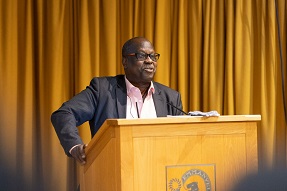
Transitioning to an unfamiliar medium of instruction: pedagogical strategies used by Rwandan primary school teachers to enable learning
Eugene Ndabaga, Cambridge Africa, 15 July 2022
This blog reflects on strategies used by teachers in classrooms as they aim to engage children with learning concepts outlined in the national curriculum. The research investigates the classroom pedagogical strategies used by primary school teachers to support the transition from Kinyarwanda to English as language of instruction.
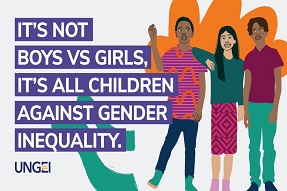
It's not girls versus boys, it's ALL children against gender inequality
Luisa Campi, Pauline Rose and Antara Ganguli, UNGEI, 29 April 2022
It is important to contextualise enrolment, learning and completion data within the larger situation of girls and boys. Girls’ education remains a compelling entry point to tackle deep-seated inequalities in the education system. This blog proposes that gender equality in and through education is a more productive banner than boys’ education or indeed, girls’ education.
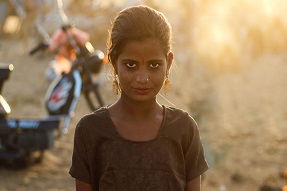
‘My teachers didn’t notice’: Nurturing the well-being of internally displaced children through trauma-informed education
Nomisha Kurian, UKFIET, 2 February 2022
How can we prioritise the well-being of displaced children in educational policy and practice? This blog attempts to understand children's struggles and histories with the aim of helping them feel seen and heard.
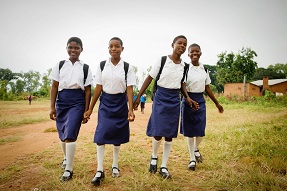
Honoured to partner on evidence to promote girls’ education internationally
Pauline Rose, UKFIET, 10 January 2022
In response to being awarded an OBE in the New Year Honours List for 2022, Pauline Rose summarises her work and that of the REAL Centre team and partners on evidence promoting girls' education internationally.
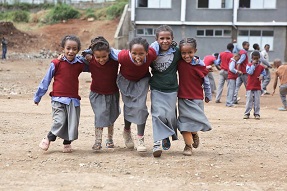
Adopting a holistic approach to examining learning loss as a result of school closures in Ethiopia: Including socio-emotional learning
Stephen Bayley, Darge Wole Meshesha, Paul Ramchandani, Pauline Rose, Tassew Woldehanna and Louise Yorke, RISE Programme, 8 December 2021
Research has begun to quantify the extent of learning loss following school closures, with many studies focusing on academic learning. However, evidence often overlooks the effects of the pandemic on children’s learning more broadly, including the effects of socio-emotional learning and the link with mental health and wellbeing.
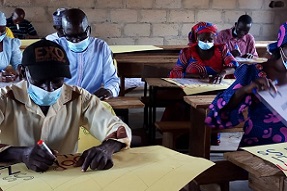
Education in the context of multiple crises: reflections from the field
Kenechukwu Nwagbo, PEER Network, 25 November 2021
As a development practitioner working to provide education in the Adamawa region in Nigeria between 2016 and 2021, the author worked under two overlapping emergencies: Conflict and COVID-19. Here, she briefly discusses the primary issues facing education in emergencies, and how the intercalated crisis of the pandemic exacerbated the education challenges in one of the poorest regions of the world.
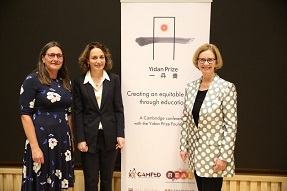
A ‘revolution in data’ is needed to create an equitable future through education
Pauline Rose, CAMFED, 3 November 2021
This blog summarises some of the issues discussed at the October REAL Centre and CAMFED conference, including advancements and challenges in girls’ education in the context of COVID-19 and climate change disruptions. Drawing on data and evidence emerging from low- and lower-middle income countries, the blog also highlights the key effects of school closures on education in these countries.
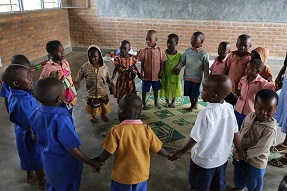
Framing ecosystems for childhood resilience
Stephen Bayley, UKFIET, 1 November 2021
Recent events on a global scale have highlighted the importance of nurturing children’s resilience to cope with adverse life events. As part of the ‘Resilience, Protection and Wellbeing’ theme of the 2021 UKFIET conference, a group of education researchers and practitioners had the opportunity to share their findings and experiences regarding different systems for promoting resilience. This blog shares highlights.

Provoking conversations around power, positionality, and bias in quantitative research
Laura Cashman, Deborah Spindelman and Charlotte Allen, BAICE, 27 October 2021
Earlier this year, the student-run Quantitative Methods Group began discussing the implications of power, positionality and bias in quantitative research. They felt that work by quantitative researchers has not benefitted from the kind of critical reflexivity at the same scale as that done by qualitative researchers. This blog summarises some of the lessons learned from the discussions.
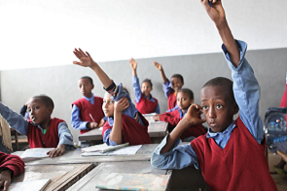
Strengthening the education system for equitable learning during COVID-19 in Ethiopia
Louise Yorke, Pauline Rose, Tassew Woldehanna and Belay Hagos Hailu, NORRAG, 25 October 2021
In the context of COVID-19, ensuring inclusive and equitable quality learning has become even more challenging due to the unequalising effects of the crisis. In Ethiopia, the significant gains made in education in recent decades are now threatened. Strengthening education systems for equitable learning is imperative and much focus has turned to “building back better” and more efficient education systems, resilient to future shocks.
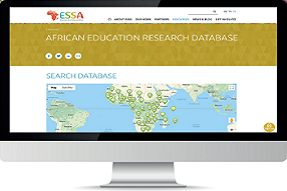
Listening to African Researchers: Making sure evidence informs education policy and practice
Samuel Asare, Pauline Rose, Sandra Baxter, Pauline Essah and Izel Kipruto, Association for the Development of Education Africa (ADEA), 14 October 2021
As education stakeholders increase their efforts to address low learning outcomes for students in sub-Saharan Africa, drawing on context-specific evidence to inform education policy and practice is imperative. To identify recent trends in the availability of evidence from African researchers, the REAL Centre and ESSA have updated the African Education Research Database and this blog summarises some new analysis.
Read the full blog post - Also published in French
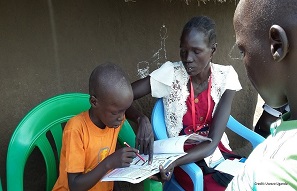
Access to and learning outcomes from early childhood education: equity considerations for refugees and non-refugees in Uganda
Bea Simpson, Mary Goretti Nakabugo and Ricardo Sabates, UKFIET, 8 October 2021
This blog explores the learning realities of refugee children in Uganda, within the globalised context of early childhood education (ECE). It examines levels of access for refugees and non-refugees and how this impacts learning outcomes.
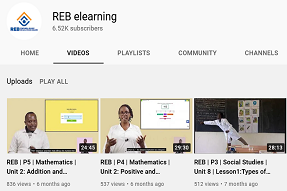
Motivating learners in learning: lessons from the implementation of competence-based curriculum in Rwanda
Pui Ki Patricia Kwok and Theophile Nsengimana, BAICE Blog, 6 October 2021
In Rwanda, reform efforts have come to form the Competence-Based Curriculum (CBC) implemented in 2016. The researchers examine what can be learned from CBC and make recommendations for future teacher training.
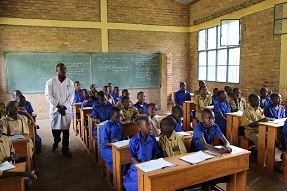
World Teachers’ Day: Addressing teaching quality in Rwandan secondary education
Laterite and the REAL Centre, UKFIET, 5 October 2021
This blog draws on a synthesis of publications and highlights five key factors associated with teaching quality in secondary education in Rwanda. These are essential to consider in programming, research and policy decisions.
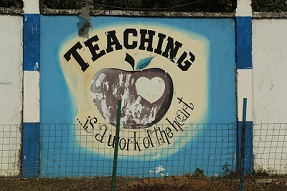
Adapting interventions to strengthen teaching quality during the COVID-19 pandemic: Experience of the Girls’ Education Challenge in Afghanistan, Ghana and Sierra Leone
Monazza Aslam, Phoebe Downing, Romanshi Gupta, Shenila Rawal and Pauline Rose, UKFIET, 5 October 2021
This blog highlights key findings from four Girls' Education Challenge projects and how they have engaged teachers and sought to improve teaching quality, whilst supporting girls to continue learning during school closures.
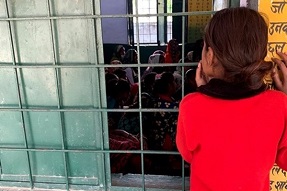
Contrasting teachers’ expectation and practices of interactions with parents in rural Sitapur, India
Mansi Nanda, UKFIET, 4 October 2021
As schools start to reopen, it will be increasingly important for teachers to interact more with the parents. Therefore an understanding of the behaviours and structures that drive teachers to interact with parents could play a key role in strengthening school community partnerships to improve children’s learning.
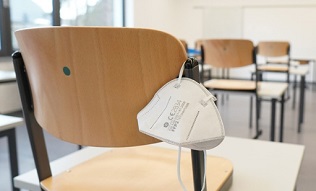
Supporting student teacher education during COVID-19 in Mexico
Israel Moreno Salto and Artemio Arturo Cortez Ochoa, UKFIET, 22 September 2021
How have student teachers been affected by COVID-19 school closures? After all, they are the next generation of educators, and their development might equally impact prospects on children’s and young people’s well-being and learning. This study looks at teacher training college students in North Mexico during the first lockdown.
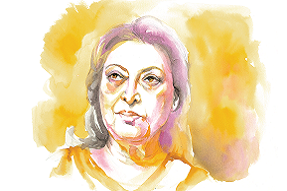
Exploring ‘Spaces’ of Learning: Girls’ Education during COVID in Pakistan
Aliya Khalid and Musharfa Shah, Mahbub Ul Haq Research Centre at LUMS, 23 July 2021
This blog explores difference concepts of 'space' for girls and women in contemporary Pakistan. The learning 'space' is generally a culturally respected space. When young girls cannot access a school space, they not only lose access to formal teaching, but the social advantages that they gain from school.

Expanding understanding of the use of Large-Scale Assessments for educational improvement
Israel Moreno Salto and Ricardo Sabates, PAL Network, 24 May 2021
This blog reflects on issues raised by a new World Bank book and a recent study of large-scale assessments in Mexico. Four broad issues are discussed: the socio-cultural context, which is not neutral; the nuanced understanding of different audiences; communication mechanisms of assessment data; and learning from both failures and successes.

Putting the collective impact of global development research into perspective – What we learned from six years of the Impact Initiative
Pauline Rose and Elizabeth Tofaris, LSE Impact Blog, 20 May 2021
At the end of the Impact Initiative programme, the REAL Centre reflects on providing support to 30 education-focused grants. Four main approaches are identified: valuing different types of impact; a collective approach to research engagement; facilitating engagement to inform policy actions; and supporting Southern-led influence for national policy change.
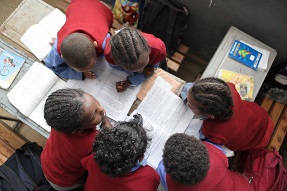
Disability and learning in Ethiopia: What has changed as a result of the COVID-19 pandemic?
Dawit Tibebu Tiruneh, Nidhi Singal, Ricardo Sabates and Tirussew Teferra, RISE Programme, 12 May 2021
Learning during the prolonged school closures has been particularly challenging for children with disabilities, and significant concerns are being raised in relation to the impact on children’s learning and emotional wellbeing. This blog provides preliminary analysis of data collected from school personnel and parents of children with disabilities in Ethiopia.
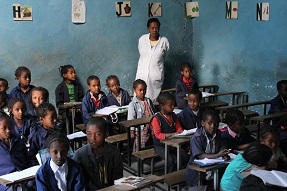
Learning inequalities widen following COVID-19 school closures in Ethiopia
Janice Kim, Pauline Rose, Dawit Tibebu Tiruneh, Ricardo Sabates and Tassew Woldehanna, RISE Programme, 4 May 2021
Pandemic related school closures in Ethiopia have disproportionately hit the most disadvantaged, particularly students from rural poor households, according to emerging evidence from RISE Ethiopia.
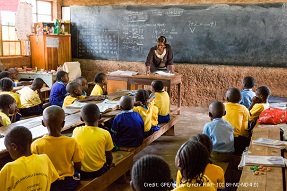
As it assumes leadership of the global education agenda, the UK slashes its own aid to education
Susannah Hares and Pauline Rose, Center for Global Development, 23 April 2021
It’s devastating that, instead of demonstrating its commitment to education during its year in the spotlight for leadership, the UK government has chosen to cut education spending by more than 40 percent, compared with overall aid cuts of around 25 percent.
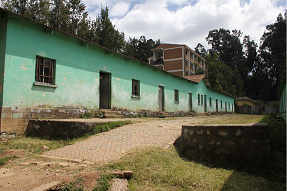
Practical and ethical challenges of doing distance research in the Global South during a global pandemic
Louise Yorke, Janice Kim, Belay Hagos Hailu and Chanie Ejigu Berhie, RISE Programme, 16 April 2021
This blog reflects on some of the practical and ethical issues that arose during implementation of two related research projects that took place in Ethiopia during the COVID-19 school closures and aimed to understand the impact of the crisis on the education system.
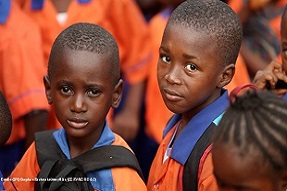
Supporting students' socio-emotional learning, mental health, and wellbeing during and after COVID-19
Louise Yorke, RISE, 15 March 2021
Socio-emotional learning could be the key to unlocking students’ full potential in a post-COVID world, but there is a need for more evidence focused on socio-emotional learning in the context of the Global South. A new study by the RISE Ethiopia team aims to start filling this gap.
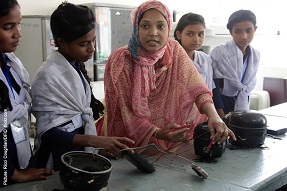
Adolescent women are being left behind in international efforts to end poverty
Pauline Rose, Tom Kirk and Sandra Baxter, UKFIET, 11 February 2021
A new report is urging for adolescent women to be given more of a priority within international efforts to end poverty and achieve other development targets by 2030. It argues that there is an urgent need to do more to support marginalised, adolescent women in low- and middle-income countries, many of whom leave education early and then face an ongoing struggle to build secure livelihoods.
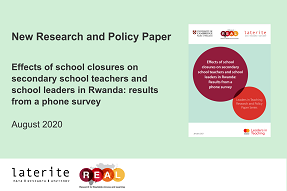
Effects of school closures on secondary school teachers and leaders in Rwanda: results from a phone survey
Laterite and REAL Centre, UKFIET, 12 January 2021
In August, during the COVID-19 school closures, phone interviews were conducted with secondary school head teachers and teachers in Rwanda to assess their experience of supporting students during school closures, and issues to consider when schools reopen. This blog highlights some of the key findings from the phone surveys.
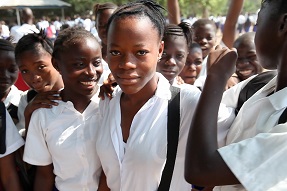
UK Government’s foreign aid cuts put girls’ education at risk
Pauline Rose, The Conversation, 26 November 2020
The UK government’s 2020 spending review suggests a cut in international aid, from 0.7% of GNI to 0.5%. This will have severe effects on the lives of girls worldwide. Even before the pandemic, 130 million girls were out of school. This number will have increased as inequality gaps have widened. Even if the UK Government stands by its commitment to protect girls’ education directly, it will still be put in danger by cutting budgets elsewhere.
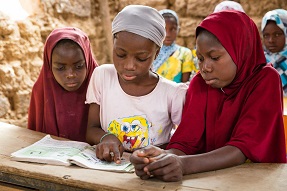
Humanitarian aid funding still failing education
Asma Zubairi and Pauline Rose, Global Partnership for Education, 18 November 2020
Alongside the many positive developments in relation to the ever-increasing visibility of education in emergencies, a new flagship report from INEE presents sobering findings on trends in humanitarian aid to education. Written in collaboration for INEE’s 20th anniversary, the report also highlights the huge neglect of education in humanitarian responses.
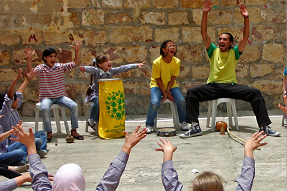
20 years of INEE: Achievements and challenges in education in emergencies
Dean Brooks, Silvia Montoya and Pauline Rose, INEE, 9 November 2020
The REAL Centre collaborated on INEE’s 20th Anniversary report focusing on achievements and challenges in education in emergencies. New data show that, even prior to COVID-19, 127 million primary and secondary school-age children and young people living in crisis-affected countries were out of school. This is equivalent to almost half of the global out-of-school population, even though only around 29% of children and young people in this age group globally live in crisis-affected countries.
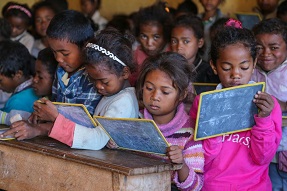
Tackling the COVID-19 education emergency through a progressive universalism approach to public financing
Pauline Rose, Global Partnership for Education, 27 October 2020
Due to additional pressures on domestic resources from the pandemic and the costs of additional measures to respond to COVID-19 education challenges, the Save Our Future campaign, supported by nearly 200 organisations around the globe, reminds us that the risks caused by the pandemic need to be averted with urgency and financing protected. Education is the solution to the longer-term recovery from the pandemic.
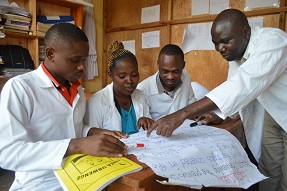
It’s time to learn together and get education right for all children
Pauline Rose and Sven Rooms, Global Partnership for Education, 21 October 2020
From separate silos to close collaborations: the COVID-19 pandemic is giving us an opportunity to build and strengthen the links between education programme implementers and researchers, to ensure that we learn from this crisis and use robust evaluations to improve learning results for children.
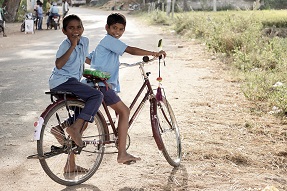
Engaging schools and communities to support children’s learning
Ricardo Sabates and Suman Bhattacharjea, Oriel Square Publishing, 7 October 2020
Ensuring that education objectives continue to be achieved during and after the pandemic involves multiple stakeholders and diverse partnerships. With new educational needs arising, and roles changing for all involved, the central question of accountability is unpacked through lessons learned from Pratham’s PAHAL intervention: how can we all work to ensure that children achieve their full learning potential?
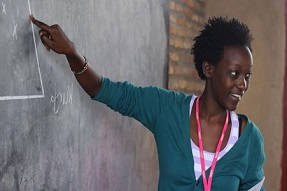
Celebrating World Teachers Day: Reflections from Leaders in Teaching initiative in Rwanda
Laterite and REAL Centre, Laterite, 2 October 2020
As learning partners on the Mastercard Foundation’s Leaders in Teaching initiative, Laterite and the REAL Centre gather evidence on how teachers are coping with the COVID-19 crisis, and how implementing partners are pivoting their programmes to best support teacher and student learning. This blog shares how evidence-based ways can support teachers.
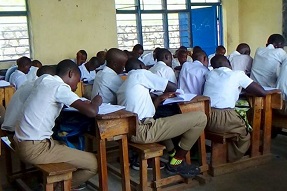
Using the Teach classroom observations tool in Rwanda
Laterite and REAL Centre, Laterite, 2 October 2020
This blog highlights lessons learned from using the World Bank’s Teach tool and video recordings to observe classroom activities in over 100 Rwandan secondary schools. The team used the tool to capture classroom observations in mathematics, with the aim of finding an empirical and scalable way to understand the impact of interventions to improve teaching quality.
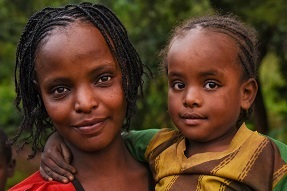
Implications of COVID-19 for pre-primary education in Ethiopia: Perspectives of parents and caregivers
Janice Kim, Pauline Rose, Tassew Woldehanna, Belay Hagos Hailu and Mesele Araya, UKFIET, 30 September 2020
This blog highlights some of the key messages from a phone survey carried out with parents and caregivers of pre-primary school-aged children in Ethiopia during COVID-19 school closures. The surveys aimed to identify how parents and caregivers were responding to the crisis; what information and resources they had access to; how they were able to engage in supporting their children’s learning at home; and their perspectives on schools reopening.
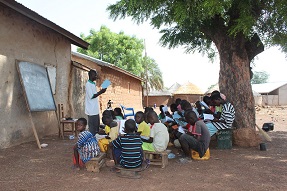
The centrality of language for learning
Ricardo Sabates Aysa, The Tony Little Centre, 23 September 2020
What is the impact of school closures on children’s learning in multilingual environments in the Global South, where resources are constrained and many children lack basic foundational skills? Providing resources and activities in a language that is unfamiliar to learners does not benefit these children, and indeed can be detrimental to their learning. Restarting education in a language that children are unable to understand, whether fully or partially, is likely to exacerbate existing inequalities in literacy acquisition faced by children from linguistic minorities.
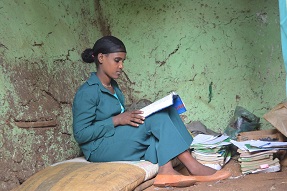
What are the challenges for reopening schools in Ethiopia? Perspectives of school principals and teachers
Louise Yorke, Pauline Rose, Tassew Woldehanna and Belay Hagos Hailu, Cambridge Africa, 18 September 2020
This blog summarises some of the key findings from phone surveys carried out with school principals and teachers during COVID-19 school closures in Ethiopia. The surveys aimed to identify how school principals and teachers were responding to the crisis; if and how they had been able to support parents and students; and their priorities once schools reopen.
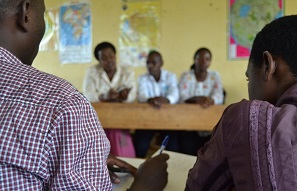
Improving teaching quality in Rwanda during COVID-19: Emerging opportunities for learning and research
Laterite and REAL Centre, Laterite, 15 September 2020
The Mastercard Foundation’s Leaders in Teaching programme supports secondary school teachers throughout their careers and prepares them to deliver high-quality, relevant education in STEM subjects. This blog highlights key points from discussions with implementing partners on emerging implications of COVID-19, with the aim of contributing to evidence of improved teacher quality and student learning through the programme.
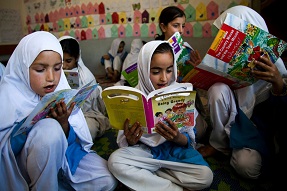
‘Coalitions for change’: The potential of a global coalition of parliamentarians to push for progress in girls’ education
Pauline Rose, IPNEd, 27 August 2020
Research shows that it will be vital for the International Parliamentary Network for Education (IPNEd) to adopt a transformative leadership approach. This needs to tackle patriarchal norms and structures that create resistance to change, to enable all girls to access 12 years of quality education. Motivated and committed leaders need to work individually and collectively to convert political commitment into meaningful action.

Why we need to listen to asylum-seeking students
Hannah Gaffey, INEE, 25 August 2020
Based on Hannah’s MPhil research, which documented the post-compulsory educational experiences and aspirations of three young asylum seekers in the UK, she demonstrates the importance of listening to the voices of those who have been displaced. This blog outlines issues learnt from each participant in order to illustrate how we as educators and academics can better understand the reality of people’s lived experiences if we take enough time to sit and listen.
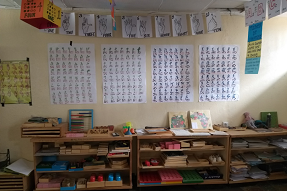
Reflections on support available for vulnerable students in Ethiopia
Yisak Tafere, RISE, 6 August 2020
As part of RISE Ethiopia’s research, a qualitative study was designed to document the implementation of the General Education Quality Improvement Programme for Equity (GEQIP-E) reforms in selected schools and the impact of the reforms as perceived by school and community stakeholders. Data was collected in early 2020 and this blog provides some initial reflections on available support, the delivery process and challenges faced by children with disabilities and girls.
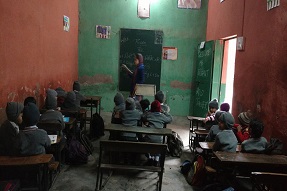
Examining disability inclusion in India’s new National Education Policy
Tanushree Sarkar, CaNDER, 19 August 2020
India’s National Education Policy 2020 (NEP) has been hailed as a new era in educational reform. However, disabled children in India rarely progress beyond primary school, and only 9% complete secondary education. This blog examines the implications of the NEP for children with disabilities around four key aspects: school choice; teacher and special educators; assessments and curricula; and terminology of inclusion and disability.
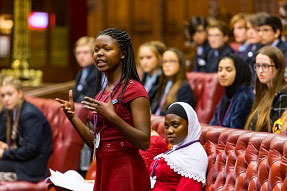
Transformative political leadership for girls’ education
Pauline Rose and Rebecca Gordon, Developmental Leadership Program, 29 July 2020
Marginalised girls are likely to be most affected by COVID-19. The UK Government committed to supporting 12 years of quality education for all girls, in collaboration with Commonwealth Heads of Government, when they met in London in 2018. Given the gap between progress and intention, it is important to consider how political leaders can translate statements into real change for marginalised girls.
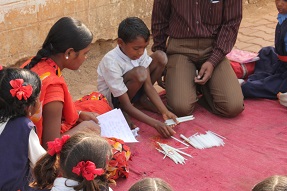
More than the sum of its parts: Internationally-comparable citizen-led assessments to ensure no child is left behind
Pauline Rose, PAL Network, 8 July 2020
The PAL Network has been at the forefront of developing community-led approaches to assessing basic literacy and numeracy, in households rather than schools. A drawback has been that the data produced by each country survey, while similar in approach, has not been comparable at an international level… until now. The new assessment tool – International Common Assessment of Numeracy (ICAN) – provides data on early grades of primary school. Its availability couldn’t be more timely in the light of the global COVID-19 pandemic.
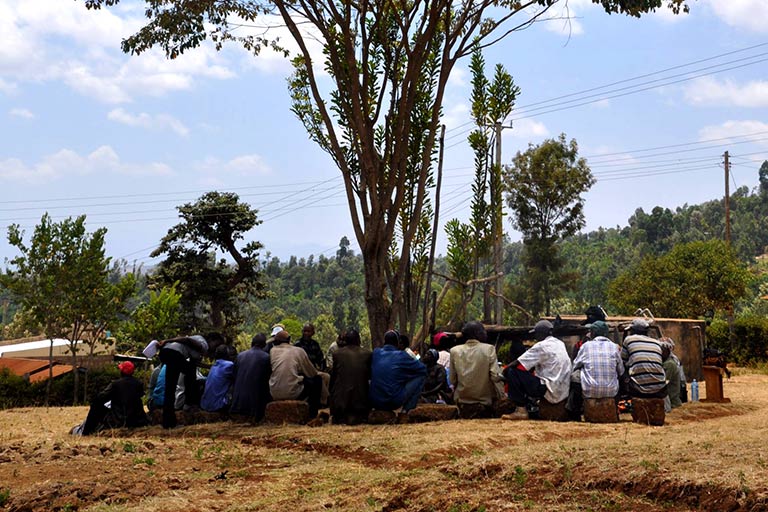
Challenges and opportunities for mobile technology supported dialogue in East Africa
Kevin Martin, UKFIET, 30 June 2020
Kevin Martin is collaborating with adult subsistence farmers across central Kenya, who face the myriad challenges of poor infrastructure, poverty and varied levels of literacy. His research looks at how mobile technology can and should be used to support the existing small group dialogic education, which is the primary means of continuing education for these farmers. For those fortunate enough to own a mobile phone and have reliable network access, chances are the phone is an older ‘feature’ phone, incapable of little more than SMS and voice calls. To address these access challenges, Kevin’s research has pivoted to investigate educational platforms built entirely on SMS capabilities.
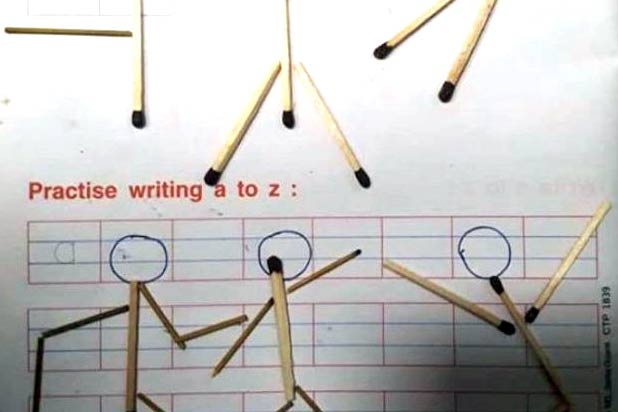
‘Education for All’ under lockdown: The path ahead for inclusion of children with disabilities
Seema Nath, UKFIET, 9 June 2020
The current pandemic situation is disproportionately affecting those within marginalised communities in India and across the globe. In education, these disadvantages are amplified for learners with disabilities belonging to low socio-economic backgrounds. Seema held interviews with educators in Mumbai about their experience and challenges, in order to try and learn lessons from schools that are incorporating the principles of inclusion and social justice while approaching these challenges.
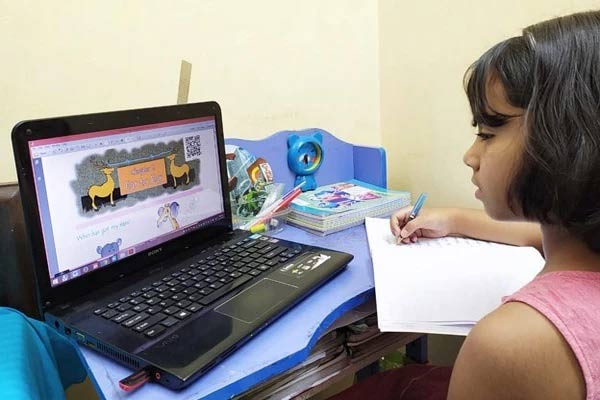
The new normal: Prioritising child wellbeing in India
Nomisha Kurian, Tanvi Sethi and Angana Das, UKFIET, 8 June 2020
As children in India face unprecedented stressors, this seems a timely moment to consider their wellbeing. In this article, the authors highlight factors that threaten their emotional health and suggest measures to protect and nurture it; they discuss experiences and insights as graduate researchers and development practitioners within India’s complex social, cultural, and economic milieu. Their analysis operates at three levels: society, home, and school.

Traffic to educational YouTube channels and Google Classroom during COVID-19 shows the stark digital divide between nations
Vijay Siddharth Pillai, UKFIET, 2 June 2020
Amidst school closures, governments across the world are trying to ensure continuity of learning through various means, including instructional videos and online tools like Google Classroom. However, its effectiveness depends on proximal factors like its accessibility and consistent use. Analysis of the extent and profile of traffic to educational YouTube channels and Google Classroom shows that the barriers are stacked up against children of less developed and fragile nations when it comes to accessing these online tools and platforms.
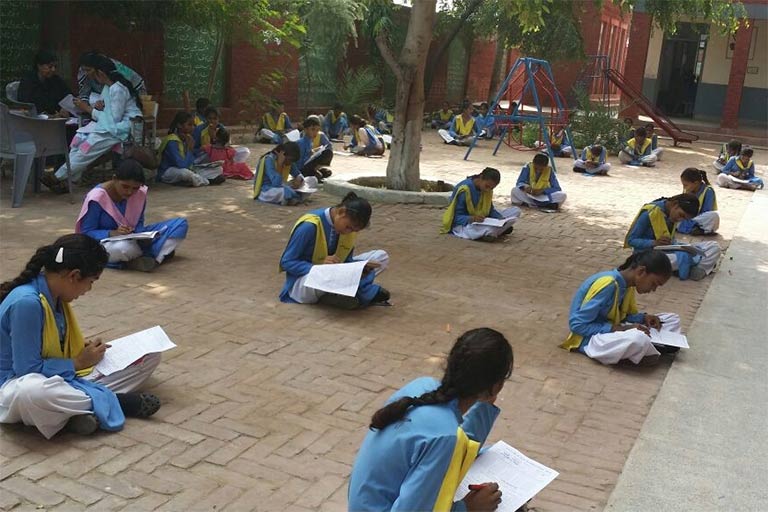
Challenges and opportunities for Pakistan education systems in the COVID-19 response
Rabea Malik, UKFIET, 1 June 2020
As a result of global school closures, it has become immediately clear that the children at risk of dropping out, and those who are likely to experience the most significant learning losses, are the ones from marginalised backgrounds. Poverty, gender and location are intersecting to entrench exclusion for already-marginalised children. What do government policies and guidelines around education during the COVID-19 pandemic mean for Pakistan’s large, diverse, federated education system? Given the scale of operations and the nature of entrenched inequities, the key guiding principles should be to address inequalities and to strengthen decentralised governance and service delivery.
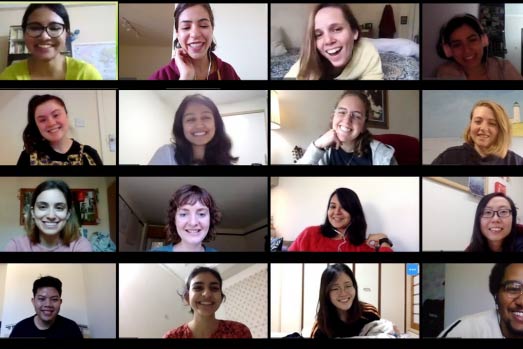
Adapting to the times: Student experiences of rethinking research under lockdown
Kayla Malone and Richa Sharma, UKFIET, 29 May 2020
Education around the world has been disrupted as a result of the global COVID-19 pandemic – from pre-primary level in Ethiopia, to basic education in Ghana, to higher education in Syria. Higher education in the UK has also been affected – a group of students from the MPhil Education, Globalisation and International Development course at the University of Cambridge reflect here on how their fieldwork has been affected and how they are adapting to their new realities.
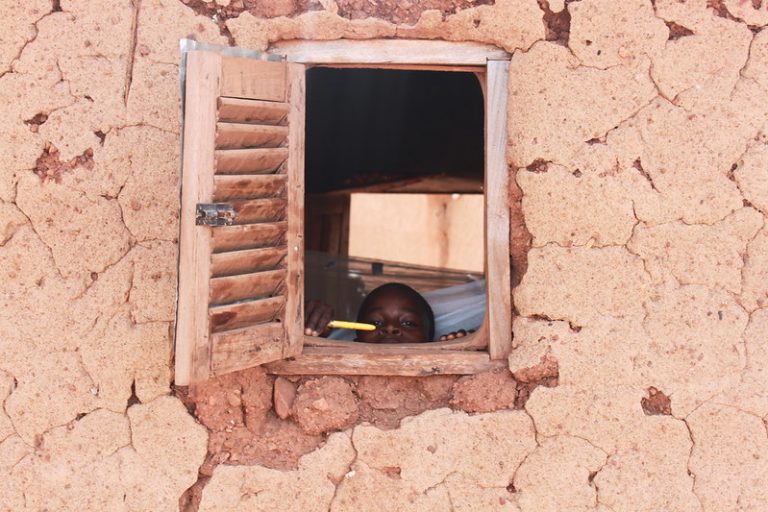
Estimating learning loss by looking at time away from school during grade transition in Ghana
Ricardo Sabates and Emma Carter, UKFIET, 27 May 2020
During the current school closures, several methods for reaching children at distance have been implemented, including the use of radio and television, as well as off-line resources. How much children will learn during this time remains unknown, although it is expected that the poorest will be hit the hardest. In an attempt to shed some light on these unknown factors, they provide an estimate of the potential learning loss which happens when children transition from one school year to the next after undergoing the Complementary Basic Education programme in Ghana.
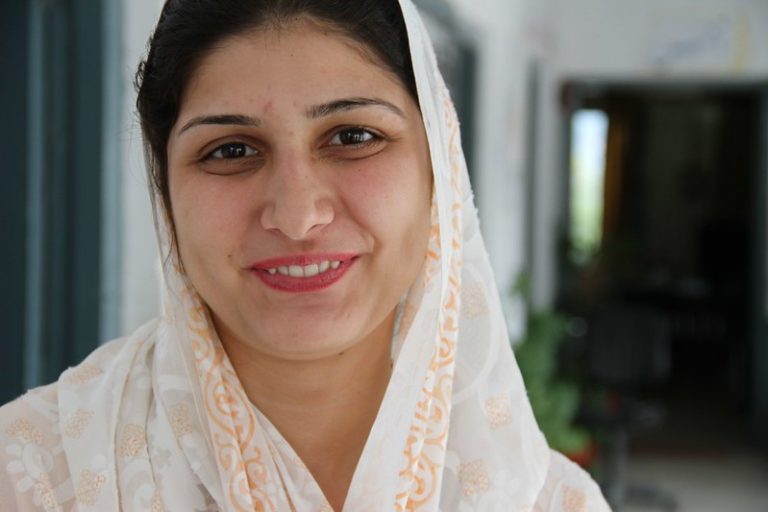
Stop. Pause. Reflect. Rethinking teacher engagement during lockdown
Camilla H Chaudhary and Annya F Niaz, UKFIET, 22 May 2020
The current lockdown has positioned home schooling and remote learning, previously outliers of mainstream education, as the new normal. Are teachers engaging with their students using these new ways of learning? If so, how can they be supported in this effort and to prepare for when schools will reopen? The authors look at teacher training during lockdown in Pakistan and make recommendations for repositioning priorities that could be applied in other contexts.
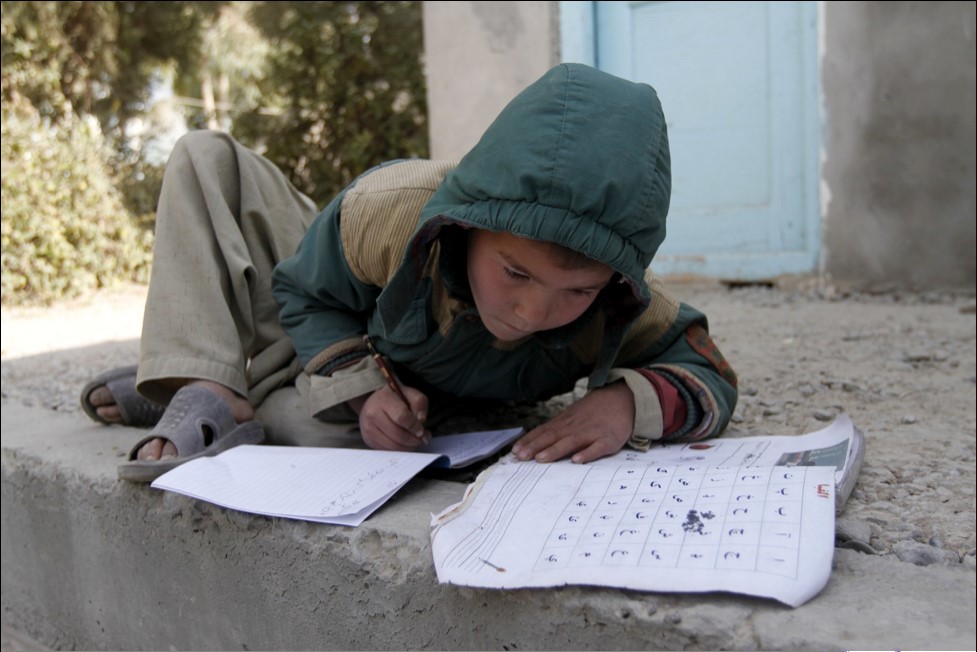
No-tech solutions to continue learning: an example from Afghanistan
Vijay Siddharth Pillai, UKFIET, 12 May 2020
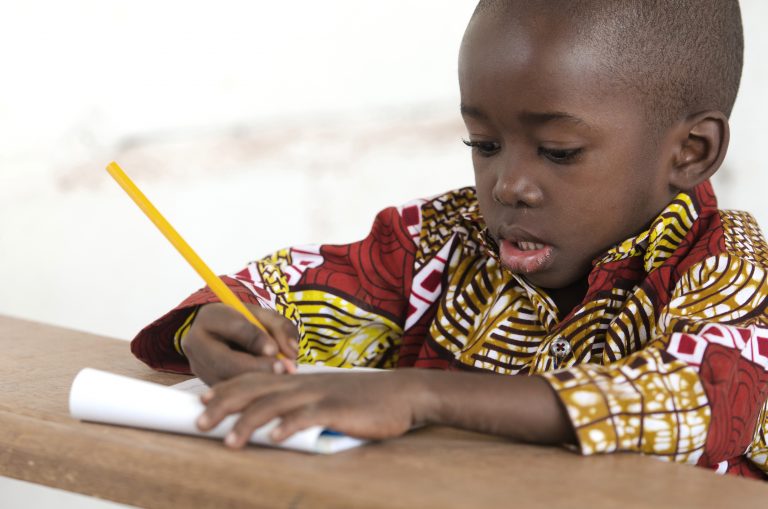
Education response to COVID-19: How can basic education be implemented in Ethiopia?
Belay Hagos Hailu, UKFIET, 11 May 2020
How can basic education be implemented in Ethiopia during the COVID-19 pandemic? Due to the school closures, there could be significant learning loss in general and huge inequalities against disadvantaged segments of the population. This blog outlines five strategies for implementing basic education: availability of devices; providing a coordinated response; monitoring engagement and learning; inclusion of pre-school children; and coping emotionally with the effects of a pandemic.
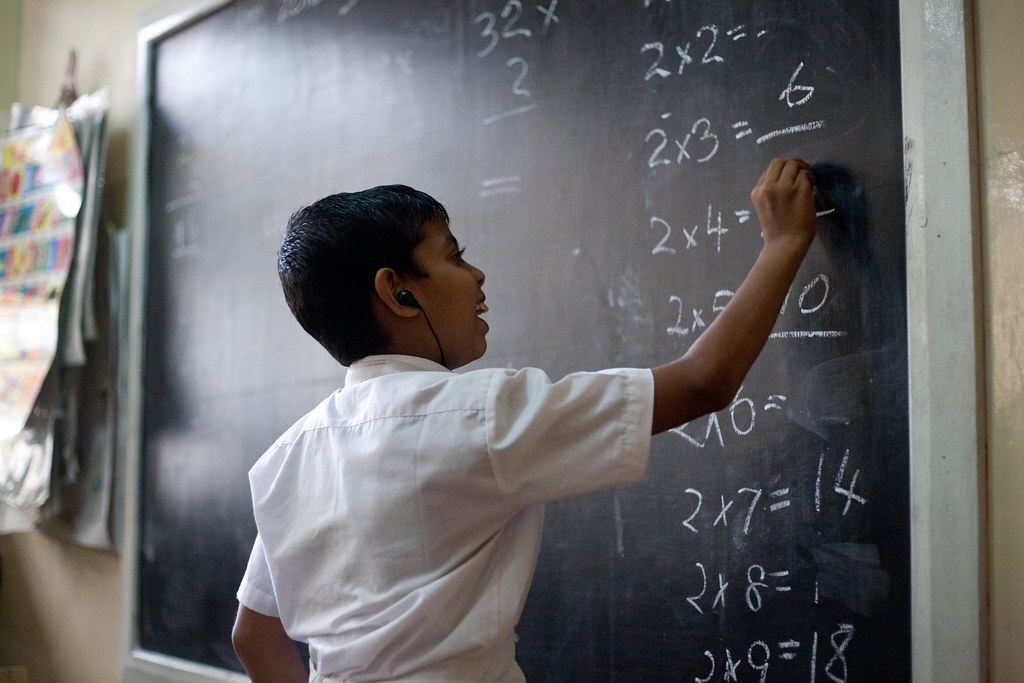
Connect and adapt to learn and live: Deaf education in Sri Lanka
Thilanka Wijesinghe, UKFIET, 7 May 2020
During the pandemic crisis, an area that has been instantaneously dropped, lost or completely invisible is the education of children with disabilities. This article aims to provide visibility to the field of disability in education. An online survey was carried out with educators in two residential, semi-government schools for the Deaf in Sri Lanka.
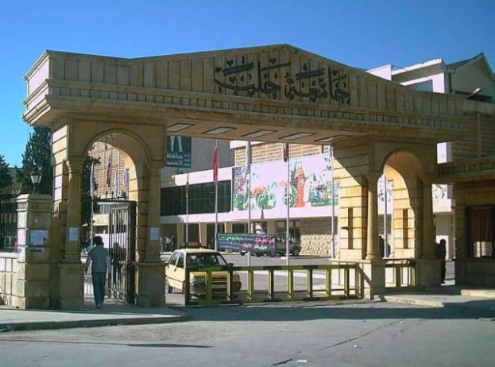
COVID-19 and conflict: Challenges and hopes for an alternative future in higher education in Syria
Basma Hajir and Hiba Salem, UKFIET, 6 May 2020
COVID-19 highlights limitations that Syrian teachers and students have faced for years, while offering new opportunities. Basma Hajir and Hiba Salem highlight the complex challenges of Syria’s higher education system and open up debate to help envisage an alternative future for the country’s university situation.
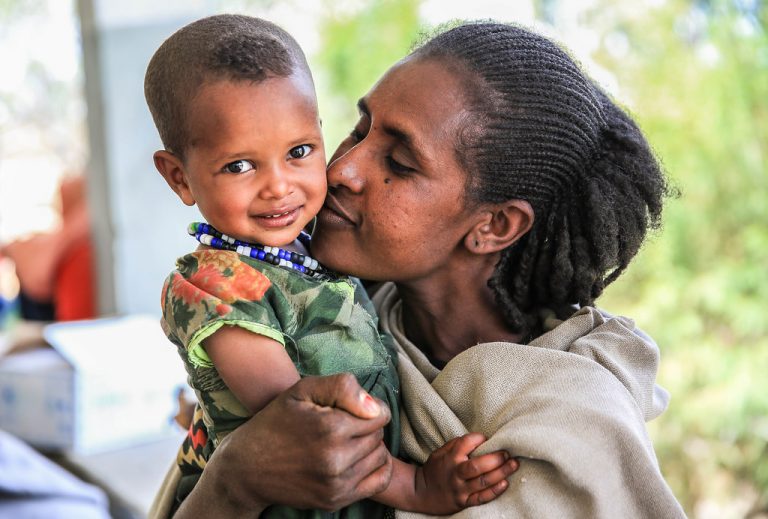
The threat of COVID-19 on Ethiopia’s recent gains in pre-primary education
Janice Kim and Pauline Rose, UKFIET, 4 May 2020
The current school closures in Ethiopia place at risk improvements to date in access for many students who were previously excluded from education. With increased government involvement, the gross enrollment rate in pre-primary education surged from 4 to 46% over a six-year period. This article highlights the challenges of distance education for early childhood level, where there are wide inequalities by household wealth and urban-rural locations.
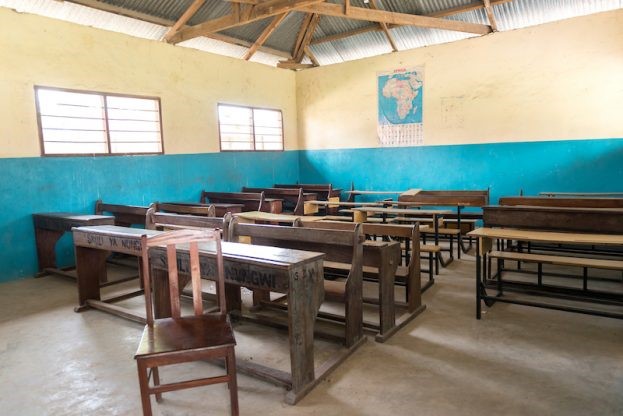
COVID-19 school closures may further widen the inequality gaps between the advantaged and the disadvantaged in Ethiopia
Dawit Tibebu Tiruneh, UKFIET, 21 April 2020
The COVID-19 pandemic could have a lasting impact on increasing inequality in low-income countries such as Ethiopia. This blog outlines three areas for attention: introducing evidence-based interventions to recover lost learning; putting strategies in place to ensure children return to school when they reopen; and preparing teachers, students, and parents in advance of future crises.
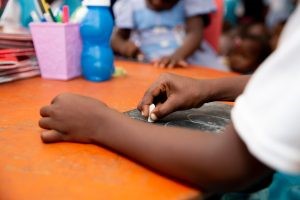
Rethinking education in the time of COVID-19: Getting dizzy from all the pivoting
Julie Bélanger, UKFIET, 17 April 2020
With the global situation changing daily and an exponentially growing proportion of children out of school, governments have been scrambling to find ways of ensuring some continuity in learning now, while planning for the medium- to longer-term consequences of the pandemic. This blog discusses how this has required so much pivoting that it is not surprising that we are all feeling somewhat dizzy… It outlines three key areas: learning from the evidence, governments adapting quickly and knowledge sharing in a time of global crisis.

Think local: Support for learning during COVID-19 could be found from within communities
Ricardo Sabates, UKFIET, 16 April 2020
Although Ricardo Sabates advocates for the use of educational technologies (EdTech) as an aid to learning, he outlines important lessons from ongoing REAL Centre research which should unleash the potential of communities to tackle this crisis. These include: supporting volunteers to serve their communities; engaging with locally-trained facilitators; engaging with parents; measuring learning; and support through off-line methods.

Rethinking education in the time of COVID-19: What can we contribute as researchers?
Pauline Rose, UKFIET, 7 April 2020
This blog was written by Professor Pauline Rose, Director of the REAL Centre. It highlights some of the efforts to support the continuation of education during the current COVID-19 pandemic and asks what researchers can contribute towards an evidence base that will be relevant for policy now and in the future.

